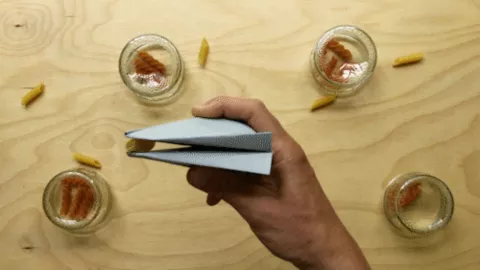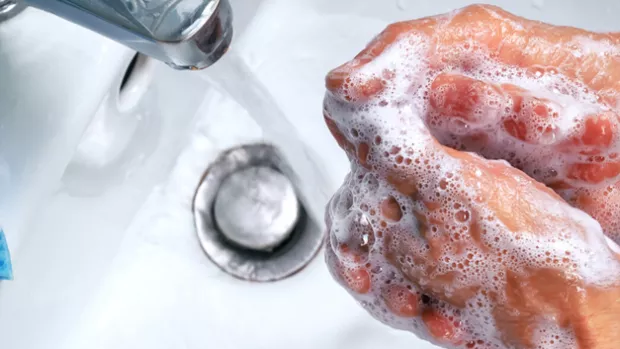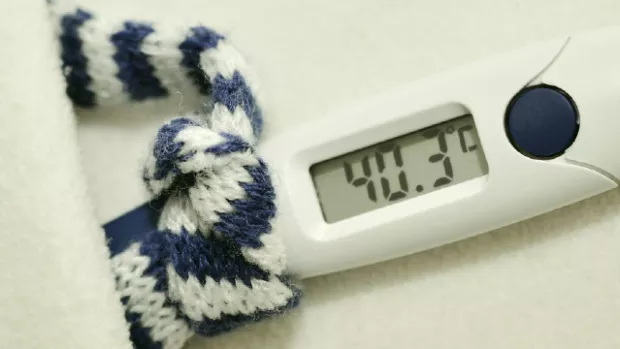
How playing with pasta can help families understand MS and coronavirus
Trying to get to grips with the complicated science behind MS and coronavirus is challenging enough – but imagine how it feels if you’re 12 years old! The MS team at Queen Mary University London are here to help.
When coronavirus hit, we all wanted to know what it would mean for us – am I at risk, should I be shielding, can I still go to work?
Find the latest on coronavirus and MS
The team behind ‘Digesting Science’ – a programme of events for families where a child or parent has MS - wanted to help answer a few of these questions.
They developed an activity where you use everyday items from around the home to build your own game. This explains how the immune system fights viruses like coronavirus and what happens in MS.
Make your own Pac-Man
Immune cells circulate in our blood stream fighting invaders, like viruses.
The Digesting Science team want you to imagine an immune cell as an origami Pac-Man (a classic 80s arcade game character). All you need is a piece of paper to make your own.
Their challenge? Use your Pac-Man immune cell to try and pick up as many pieces of pasta – aka viruses – as possible. Not as easy as it sounds.
Next up – add a blindfold and set a timer! Now you have the immune cells trying to fight the new coronavirus.
Is your Pac-Man friend or foe?
In MS, some of those immune cells get confused and attack the protective sheath around nerves in the brain.
The activity goes on to explain that most MS treatments should be able to tell whether your Pac-Man is a friendly immune cell trying to protect you from coronavirus, or a confused immune cell accidentally targeting that protective sheath.
So in theory, being treated for MS won't necessarily make you more vulnerable to coronavirus - but we need data from real people to know for sure. And some treatments might increase the risk more than others, at least temporarily. It's important to discuss your personal situation with your MS specialist.
Read our medical advisers' advice on MS treatments and coronavirus
Children and adults alike have been getting involved all summer. The team set up an online group where young people could connect with each other. And leading MS researcher Professor David Baker even joined them for some Zoom origami.
From plasticine to pasta
It wasn’t so long ago that researchers rarely interacted with the people who would benefit most from their research. Dr Alison Thomson, a lecturer at QMUL, has been bringing them together for the last ten years.
She first got the MS researchers at QMUL building models of their research with plasticine. She said “when they were physically doing an activity, they were able to slow down their incredible brains and chunk down the science to make it understandable – they made it into a story”.
This grew into Digesting Science, which aims to help 6-12 year olds learn about the science of MS. Before then, Alison says, ‘there was nowhere you could go to talk to other families about what you were going through from a children’s perspective but also from a parent’s perspective”.
Think it’s just for kids? Think again!
Since 2014, 345 families have attended 86 Digesting Science events. The activity kits have been used internationally and have been translated into many different languages.
Although the activities are aimed at children, plenty of adults have told us they boosted their own understanding. Some people have found that after taking part, they are able to read a proper scientific paper.
So the next time you’re looking for something to do at home, maybe put the 1000 piece puzzle to one side and consider learning about the immune system using some store cupboard essentials.



